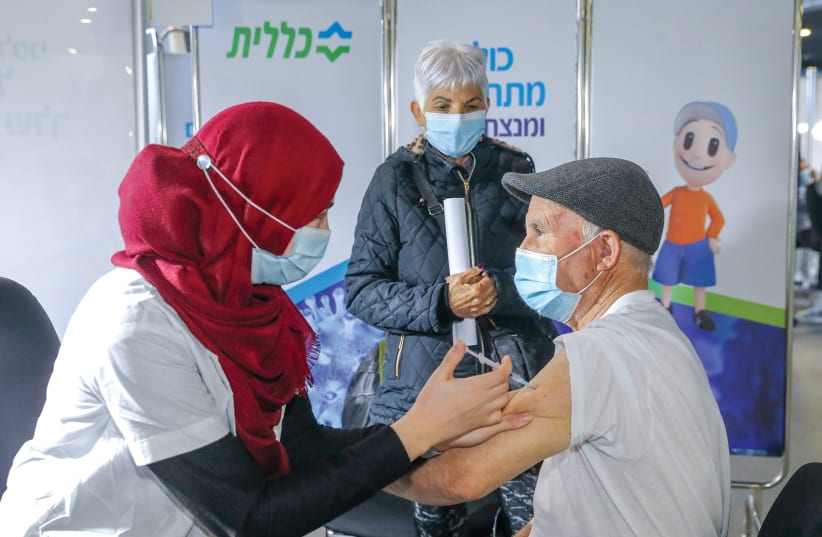The study evaluated the vaccine's effectiveness in five areas of interest: coronavirus infections confirmed with a PCR test, symptomatic COVID-19, hospital admission for COVID-19, severe cases of COVID-19 and death due to COVID-19.The coronavirus vaccine prevents 57% of symptomatic cases within about two weeks after the first dose and 94% of symptomatic cases starting seven days after the second dose, according to the study.
Clalit is the largest HMO in Israel, insuring 4.7 million patients, about 53% of the country's population.The study, which evaluated the data of over a million patients, was one of the first to analyze the effectiveness of the vaccine on such a large scale. The large amount of detailed data also allowed researchers to estimate vaccine effectiveness for specific subpopulations, something that randomized clinical trials were unable to do. The efficacy of the vaccine was found to be high and similar to the efficacy reported in clinical trials.
The researchers found that during the period from 14 to 20 days after the first dose, the vaccine was 46% effective at preventing confirmed infections, 57% effective at preventing symptomatic cases, 74% effective at preventing hospitalization, 62% effective at preventing severe illness and 72% effective at preventing deaths due to the virus.
In the period from 21 days to 27 days after the first dose – the week after the second dose – the effectiveness of the vaccine increased, becoming 60% effective at preventing confirmed infections, 66% effective at preventing symptomatic cases, 78% effective at preventing hospitalization, 80% effective at preventing severe illness and 84% effective at preventing deaths due to the virus.
Starting seven days after the second dose, the effectiveness of the vaccine improved significantly, preventing 92% of confirmed infections, 94% of symptomatic cases, 87% of hospitalizations and 92% of severe cases. The study did not determine the effectiveness of the second dose in preventing deaths due to the virus.
The efficacy presented by the Clalit study concerning hospitalization, serious disease and death is lower than the efficacy presented by the Health Ministry earlier this week, which reported that the vaccine was 99% effective at preventing these issues. The ministry also found that the vaccine was 91.8% effective in preventing individuals from contracting the virus and 96.9% effective against developing symptoms such as fever and respiratory difficulties.Maayan Jaffe-Hoffman and Rossella Tercatin contributed to this report.
